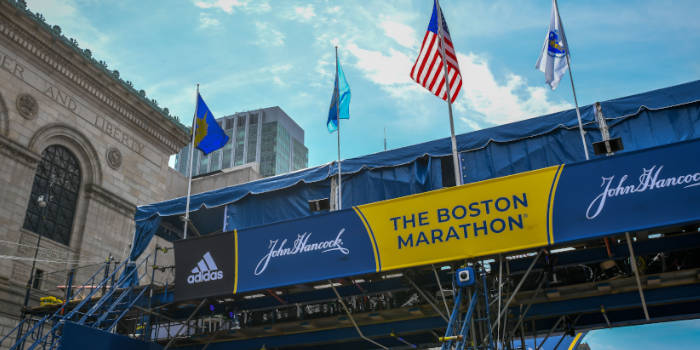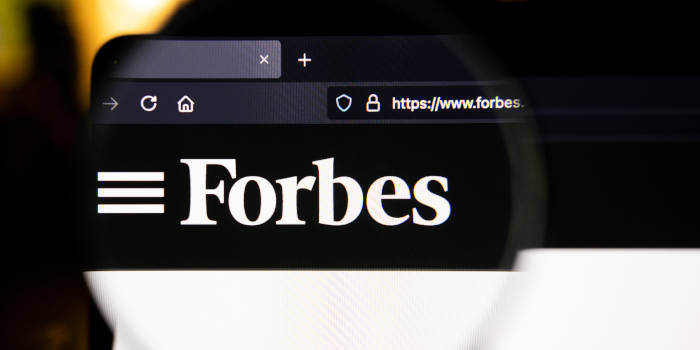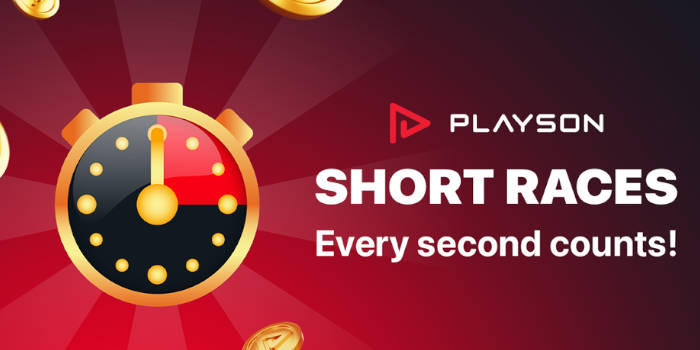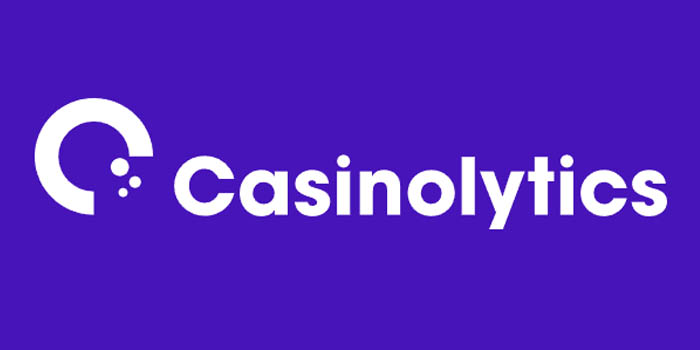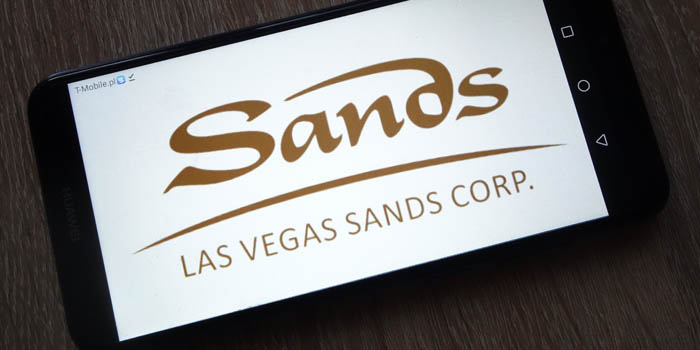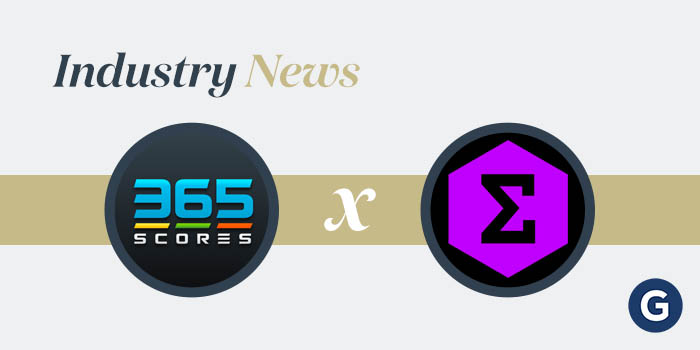Atlas-IAC: Carrying the Weight of the Sportsbook World
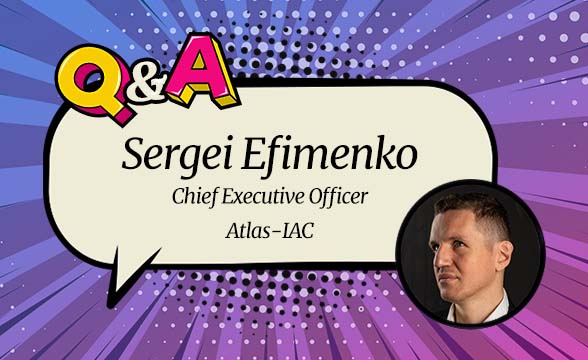
Atlas-IAC is a company with a distinct footprint in the gambling industry. Over the past months, the company has been making a lot of headlines, with its presence clearly felt across the biggest industry events. Today, Atlas-IAC brings its customers and partners a range of services, including complete customization, automation of main processes, seamless integration, round-the-clock support and so much more. The company has attended a number of events, including G2E in Singapore, ICE London, and L!VE in Amsterdam. We caught up with them just ahead of the SBC Summit Barcelona and spoke with company CEO Sergei Efimenko.
We’ve heard a fair bit from Atlas-IAC on the conference rotation this summer, why the push and where’s the next stop?
Well, as soon as we started to get a handle on the pandemic and real-world summits came back on the circuit, we knew 2022 was going to be a critical year for the industry and there’s no substitute for being there in person, with a sizeable stand and a strong team of delegates in order to get the word back out in the court of industry opinion. From ICE London to iGB L!VE in Amsterdam and then on to G2E Asia in Singapore last month, where we ran a great campaign around how ATLAS-IAC’s bleeding-edge tech and agile tools help meet local regulatory challenges with a light physical deployment, backed up by centralized control systems, wherever you are in the world.
Next up for us is this week’s stop at SBC’s flagship summit in Barcelona, where once again the Atlas-IAC team will be on-site (at Stand E1) alongside our partners at RPM Gaming, the emerging force in digital and retail betting. After the dazzling summer of sport, SBC Summit Barcelona provides a timely think tank for the recently renewed football campaign and how the industry can best provide operators and bettors with engaging, innovative betting experiences across some tent-pole, revenue-driving events this autumn – dominated, as ever, by the imminent World Cup football (always a defining moment for revenues and new-account growth) but also not forgetting many other sports, like the T20 World Cup cricket and the NFL season stateside. Elsewhere, we’ll also have a stand at G2E Las Vegas in October and SiGMA Europe in November, so our team is racking up the airmiles!
Sectoral debate still rages around owning your tech – can you help us unpack the pros and cons there and the merits of each?
Of course, the likes of Entain and DraftKings have previously spoken about the benefits of “owning your own tech.” The overarching reality, though, is that the tech backends of any given operator can be hugely reliant on partners at various levels. So, in a nutshell, worthwhile backends are invariably sophisticated or complex. That’s why we keep their wiring out of sight and under the hood! Naturally, complexity can create its own inherent challenges, but it’s also a harsh reality that many operators have unnecessarily overcomplicated backend matters.
Sometimes that’s because they take on integrations and other tasks, which they assume will be straightforward, without fully understanding the backend technological requirements. It’s certainly a scary time to be stuck on a legacy platform where the road to redemption looks long and costly. Even the eventual success stories (e.g. the mega-merger of Paddy Power and Betfair, both of which ran off OpenBet) was fraught with issues trying to maintain core services for each brand’s client-base while operating from two platforms that didn’t always speak to one other other.
At the end of the day, the question any operator thinking about doing it themselves needs to ask is: am I a true technologist? If not, it’s better to outsource your plans to the real pros. It’s inevitable that agile, automated tech will take over from heavy, expensive legacy platforms – despite the entrenched relationships that the gaming sector holds in the latter regard. It’s akin to the world getting off oil. There are understandable reasons for staying on it. Trouble is, they’re all bad, outdated and will doubtless scupper your long-term future.
I liken it to a film director hiring the best actors but forgetting to write a coherent script. Even the finest improv or innovation skills (whether they come from the operator, supplier or broader ecommerce) can’t rescue a dud screenplay, bereft of plot or planning. Which is why we’ve gone to such great lengths at Atlas IAC to create inherently brilliant tech, built on hard-won experience and astute recruitment of the finest minds in the business. Just take our group leader who has worked on no fewer than 13 platforms in his time. Applying those learnings – from both positive and challenging journeys – gives our team a competitive edge in identifying the modular components that are the key to scalability. Indeed, we’ve staked our business model on this core expertise.
Your “no-risk” sportsbook proposition has grabbed a lot of attention recently. What makes is an attractive and sustainable model?
Ultimately, the tools are tested and proven which affords total peace of mind. We’re fully confident in the automation, and we know how to manage diverse customer bases, premised on their history and the patterns of behaviour. Therefore, whatever previous concerns may’ve been around operating a sportsbook (e.g. betting just before an event starts, betting at a time where there potentially is an unreliable feed) we have the tools to spot that and correct for it. As a result, for us, underwriting wasn’t a big challenge for us, and we are willing to do that on a competitive revenue-share model for new partners.
So, should any operator or casino be looking to mitigate the potential risk of integrating a new sportsbook, Atlas-IAC will now uniquely underwrite all the trading downside for running its services as a statement of intent and the ability of its underlying platform to deliver in any given market. The concept here was primarily aimed at casino operators or other single product operators, particularly those that aren’t used to a sportsbook solution itself. For instance, those who wouldn’t want to have a trading team; they might ostensibly baulk at the typical risks involved in running a sportsbook. Many people often looked at sportsbooks as constituting a volatile area to operate in. But our idea means you can take all the pain and risk out of the process.
What new technology do you feel will have the biggest impact on sports betting?
I feel this will be the year when artificial intelligence (from trading to marketing tools which is where Atlas excels) and data collection finally align for progressively effective modes of personalization. If your system truly knows and understands your customer from the log-in, a personalized or customized experience is just around the corner. In fact, I believe high-volume AI systems present a key battleground of the future as marketers strive to implement successful strategies. After all, if intelligence is just a matter of effective data processing, the gap between a monkey-brained man and the bigger beast of AI is only growing by orders of magnitude. At Atlas-IAC, we’ve made our reputation around harnessing such automation, building the most advanced, responsive platform around understanding the workflow before trying to make it more efficient. Employing technology in the most scalable way is one of the reasons why, for example, just a handful of our traders can oversee multiple brands across various platform implementations, each trading over 100,000 live events annually. Indeed, we’ve staked our business model on processing these economies of scale with the industry’s most scalable, flexible, and efficient sports betting and gaming platform. Allied to the latest and fastest feeds – as the data wars rage on between the likes of Sportradar, Perform and Genius – our operator partners will always win the day.
Over time, have operators really been that effective on the tech side, and is this Atlas’ opportunity?
This probably isn’t the time to name names for cautionary tales! However, suffice it to say that you don’t have to be great at tech to be a successful operator. A company like Kindred Group had a solid long-term partnership with Kambi and has acquired wisely (e.g. 32Red), while Sky Bet benefitted from excellent corporate governance and being very effective at corralling and controlling their suppliers. Of course, we probably shouldn’t overlook the glaring reality that Sky was in a privileged position to align a betting asset with a media asset – after all, Sky Sports weren’t up against much terrestrial competition for broadcasting live sport.
As you suggest, while they famously prefer to remain tight-lipped, even bet365 have notable dependencies outside their prospering operation. This is why our modus operandi at Atlas IAC is so modular. We’re approaching everything from a scalable, self-contained point of view that affords our partners unmatched optionality and adaptability.
Should modern-day operators now instead be concentrating on other areas, such as marketing and if they’re going to stand out from the crowd?
One of the main attractions of Atlas IAC’s highly-automated software is that it lets companies focus their attentions elsewhere, from value-added risk-management decisions to optimized marketing strategy. Automated CRM is even within our grasp. In fact, I believe high-volume AI systems present a key battleground of the future for marketeers implementing successful strategies. Because we cover the entire sports betting and gaming value chain, we can also offer valuable machine-learning insights around data collection and effective modes of personalization.
As for broader marketing, the likes of Paddy Power, bet365 and Sky Bet have provided some of the best and most ingenious campaigns in wider ecommerce. So effective, in fact, that they had to be reined in by regulators! The challenge nowadays, however, is how to make your brand stand out in an increasingly homogenized marketplace of prices and products. After all, this trend towards limited product differentiation will only lead to dilution. Be alert to the folly of hiring marketing “creatives” who simply don’t understand the industry – just take the glut of 20-something marketeers whose “all you need is LADbible likes” strategy proved woefully prosaic and misguided. Challenger brands need more oomph, even if that means daring to be a disruptor by being a bit subversive. At Atlas IAC, we can help you better profile your customers, unpack their motivations and synergistically engage them with insights that speak to their passions. The rest is up to you.
Although Fiona doesn't have a long-spanning background within the gambling industry, she is an incredibly skilled journalist who has built a strong interest in the constantly growing iGaming network. The team at GamblingNews.com is glad to have her on our roster to help deliver the best stories as soon as they hit. Aside from writing, she loves to dabble in online casino games such as slots and roulette, both for her own enjoyment and also as research to better improve her understanding of the industry.








